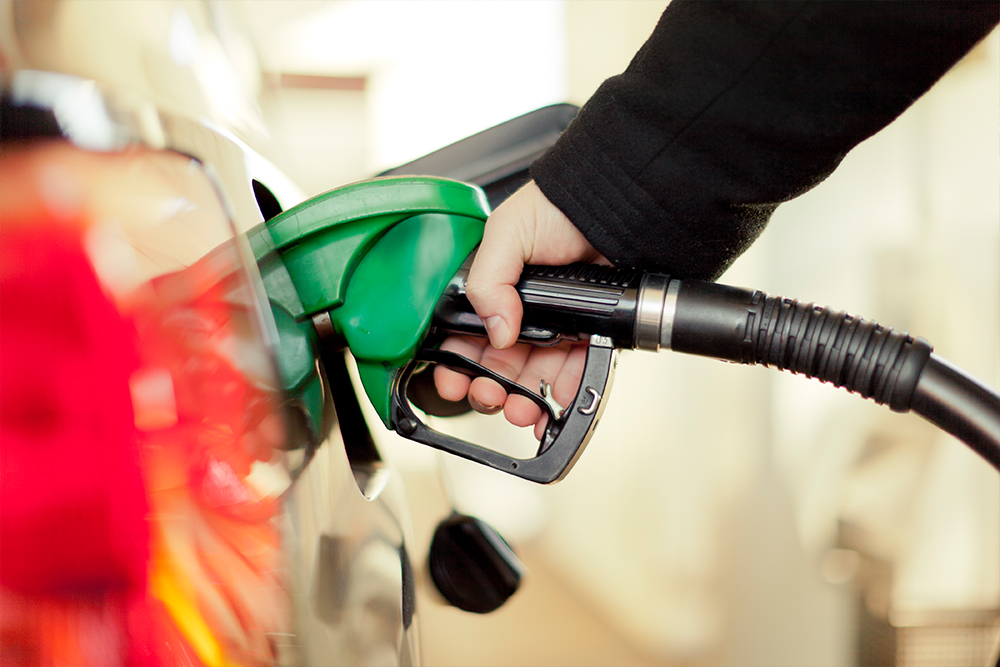
Eckerd College Chemistry Professor Joe Larkin, Ph.D., advises drivers to do simple maintenance checks to maximize your vehicle’s fuel efficiency.
Gas prices in the Tampa Bay area have soared to nearly $5 a gallon, and according to AAA, that won’t change anytime soon.
Prices are at record highs—up 66% from a year ago. It cost about $40 to fill a 15-gallon tank last year; now that cost is around $70. The effect has been profound on everything from mobile businesses to Meals on Wheels.
The Florida Legislature passed a gas tax break a few months ago that will save motorists 26 cents per gallon, but that won’t take effect until October, and it’s only for a month. The Pinellas Suncoast Transit Authority reports ridership has increased nearly 4% from April to May. But the PSTA is not immune to higher fuel costs, although for now, those costs aren’t being passed on to riders.
So what can drivers do to save money at the gas station?
Joe Larkin, Ph.D., is a professor of chemistry and chair of the Natural Sciences Collegium at Eckerd College. He often uses automobile engine parts in his lab to demonstrate principles of chemistry and physics. He also works several hours a week at Ferman Ford in Clearwater as a certified technician. He does everything from tuneups to complicated diagnostics.
To find one of the biggest impacts on fuel efficiency, Larkin says, look down. “First, properly inflate your tires so you can keep the rolling resistance to a minimum,” he explains. “Manufacturers optimize the pressures based on factors that affect the safe drivability of your car and they also keep miles per gallon in mind.
“On the [edge] of the driver’s-side door is a sticker that tells you what that pressure should be. If it’s not there, check your owner’s manual or look online.
“And rotate your tires,” he adds. “The front tires might wear out more than the rear, and that can create more friction depending on the wear pattern. All those things really add up. A car that’s rated 25 miles per gallon might be getting only 21 or 22.”

Associate Chemistry Professor Joe Larkin, Ph.D.
It’s also important to keep your car well maintained. “If your car is in disrepair, it costs more in terms of fuel, and repair costs go up rapidly,” Larkin says. “Something as simple as not changing the oil regularly makes the engine work harder, and that uses more gas.” It’s also important, he says, to avoid bad driving habits such as speeding or racing to a stoplight.
As for avoiding higher (and more expensive) grades of gas, that could be a mistake. “It depends on your car,” Larkin says. “Some cars, like performance cars where the pistons are larger, use higher octane. Running 87 octane (regular gas) in a car like that can cause knocking and create excessive engine wear. The best thing to do is look in your manual and see what grade the automaker recommends.”
Is it better to idle your car or turn it off and restart it? “Turning the engine off and restarting it,” Larkin says. “The amount of fuel you save by turning the engine off is maybe a third of the fuel you would use if you kept the engine idling.”
Larkin says that as cars get older, they become less efficient “just because of wear and tear on the engine. Regularly changing the oil, making sure the brakes are routinely serviced and making sure the tires are properly inflated can save you a mile or two a gallon.”
Finally, even if it’s painful, try not to let your gas gauge hover around E. “The fuel pump has to work harder,” Larkin says, “and whatever sediment that is at the bottom of the tank could be drawn into the filtering mechanism.”












